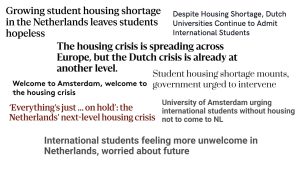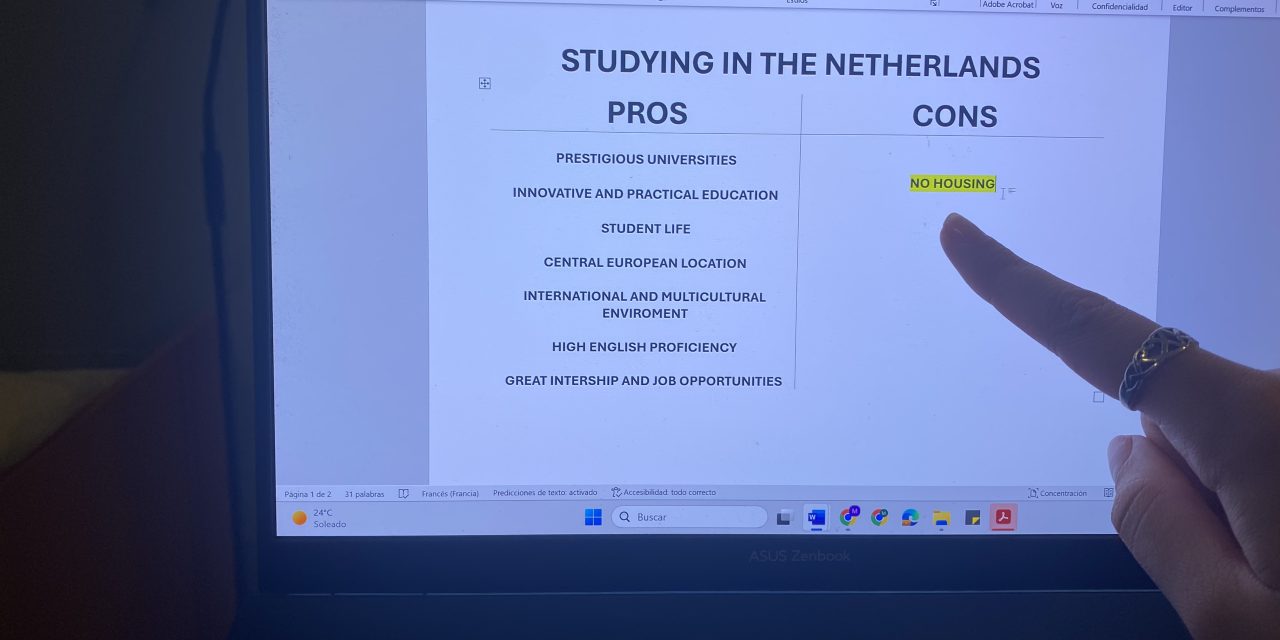Inés, a 20-year-old Spanish student, had been accepted to study for a year at one of the most prestigious universities in Europe, in the Netherlands. But she never went because she couldn’t find a place to live.
Housing crisis
Her case is not unique. The lack of housing for international students in the Netherlands has become a problem that could affect the country’s image as an Erasmus destination. Univers ities in cities like Amsterdam, Utrecht, and Rotterdam warn on their websites that finding a place to live is not easy. Utrecht University even advises starting the search before formal admission; a warning that those who don’t could risk missing out.
ities in cities like Amsterdam, Utrecht, and Rotterdam warn on their websites that finding a place to live is not easy. Utrecht University even advises starting the search before formal admission; a warning that those who don’t could risk missing out.
Inés experienced this herself. She started looking for housing early, but faced very high prices, tiny rooms, and many students in the same situation. “Even on official websites, rooms were gone in two minutes” she remembers. She considered traveling without a place to stay, hoping to find one once she arrived, but decided against it: “I was afraid of ending up in a hostel for weeks without any guarantee of finding a room.” In the end, she gave up on her Erasmus.
Universities Respond
International mobility offices say stories like Inés’s are becoming more common. Ana Ly Tamargo-Fernández, an advisor at CEU San Pablo University in Madrid, says: “Some students had their places confirmed but had to give them up because they couldn’t find housing. That’s why we ask partner universities in the Netherlands to make agreements with student residences to reserve spots for our students, but it’s not easy. There are many websites and scams… you have to be careful.”
This problem is not only in the Netherlands. According to Ana Ly, it is happening around the world, with examples in Italy, Ireland, and Germany. The crisis affects not only students’ experiences but also the country’s international reputation.
Limited Solutions
“Before, it was easier to add more exchange spots; now Dutch universities tell us they cannot go beyond what is agreed,” Ana Ly explains. “This affects students’ quality of life: many end up in tiny, poor-qua lity rooms, paying very high prices.”
lity rooms, paying very high prices.”
There are no easy solutions: space is limited, and new residences cannot be built fast enough. Still, universities are trying alternatives, such as agreements with private residences, giving clear information from the start, and encouraging students to live in less crowded cities.
Consequences
The result is a dilemma seen in mobility offices across Europe. The Netherlands still attracts students because of its prestigious universities, but living in its cities is so hard that many students give up. “Its reputation has dropped,” Ana Ly says. “Cities used to be more attractive; now they create uncertainty. There is still demand, but more and more students wonder if it’s worth it.”
Inés is clear: “It’s an attractive country, yes, but if you can’t guarantee the basics, many students will give up.”
In a continent that prides itself on academic mobility, the Erasmus dream of thousands of young people depends on one basic thing: finding a place to sleep.




